Court in Almaty Continues Hearings in Bloggers’ Extortion Case Amid Scandals
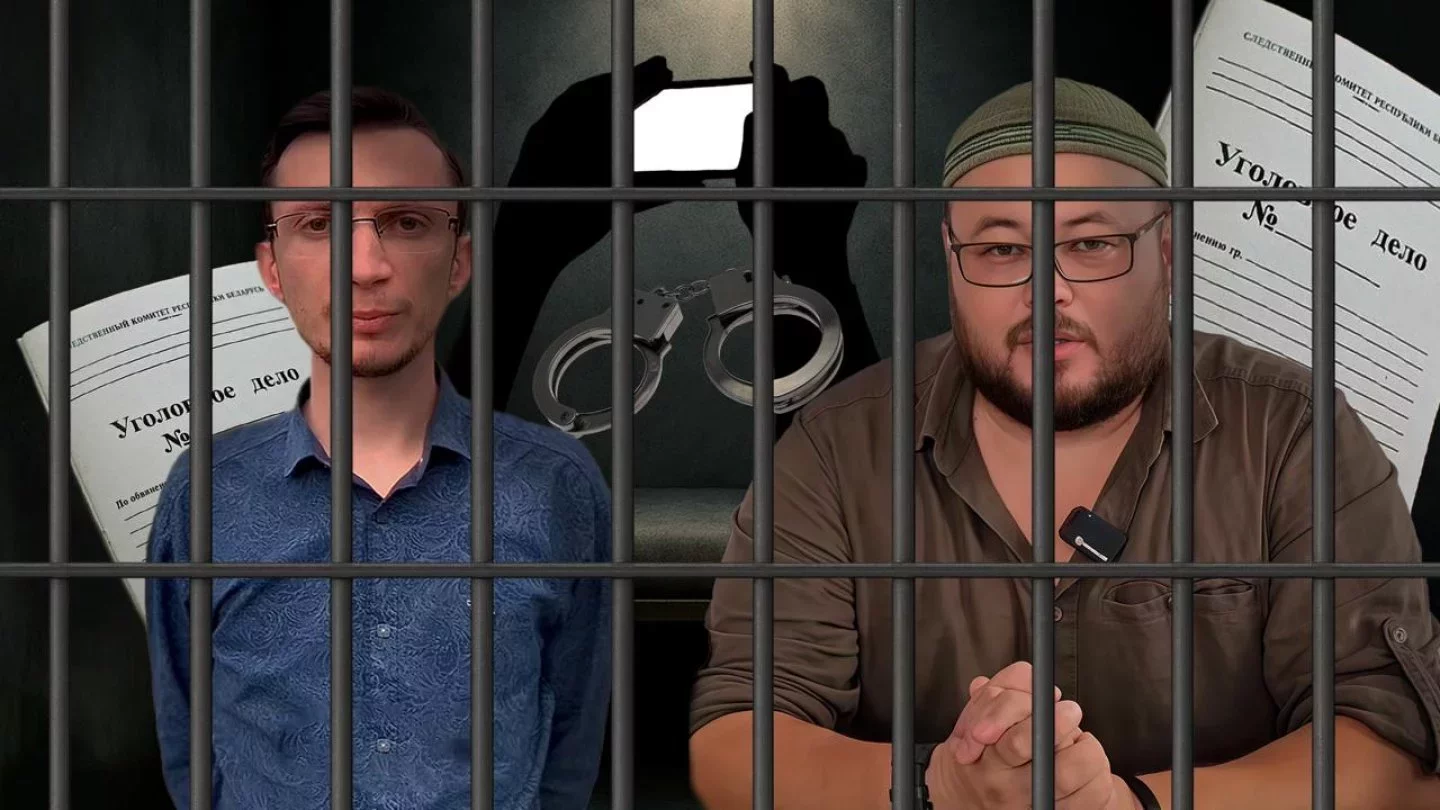 Photo: Orda.kz collage
Photo: Orda.kz collage
Court proceedings are ongoing in Almaty against bloggers Damir Kusheyev and Ruslan Karimov, along with two other defendants, Kurmangazy Aitmukanov and Andrey Belyansky.
They are accused under Part 4 of Article 194 of the Criminal Code of Kazakhstan — “Extortion on an especially large scale by a group of persons by prior conspiracy.” According to prosecutors, the group blackmailed Bakhtiyar Blayev by posting videos on social media, demanding more than 30.5 million tenge to remove them.
The latest hearing was marked by controversy, Orda.kz reports.
The defendants deny guilt, and at their request, the case is being heard by a jury. The trial is held three times a week, offline, in Russian, at Almaty’s specialized inter-district criminal court.
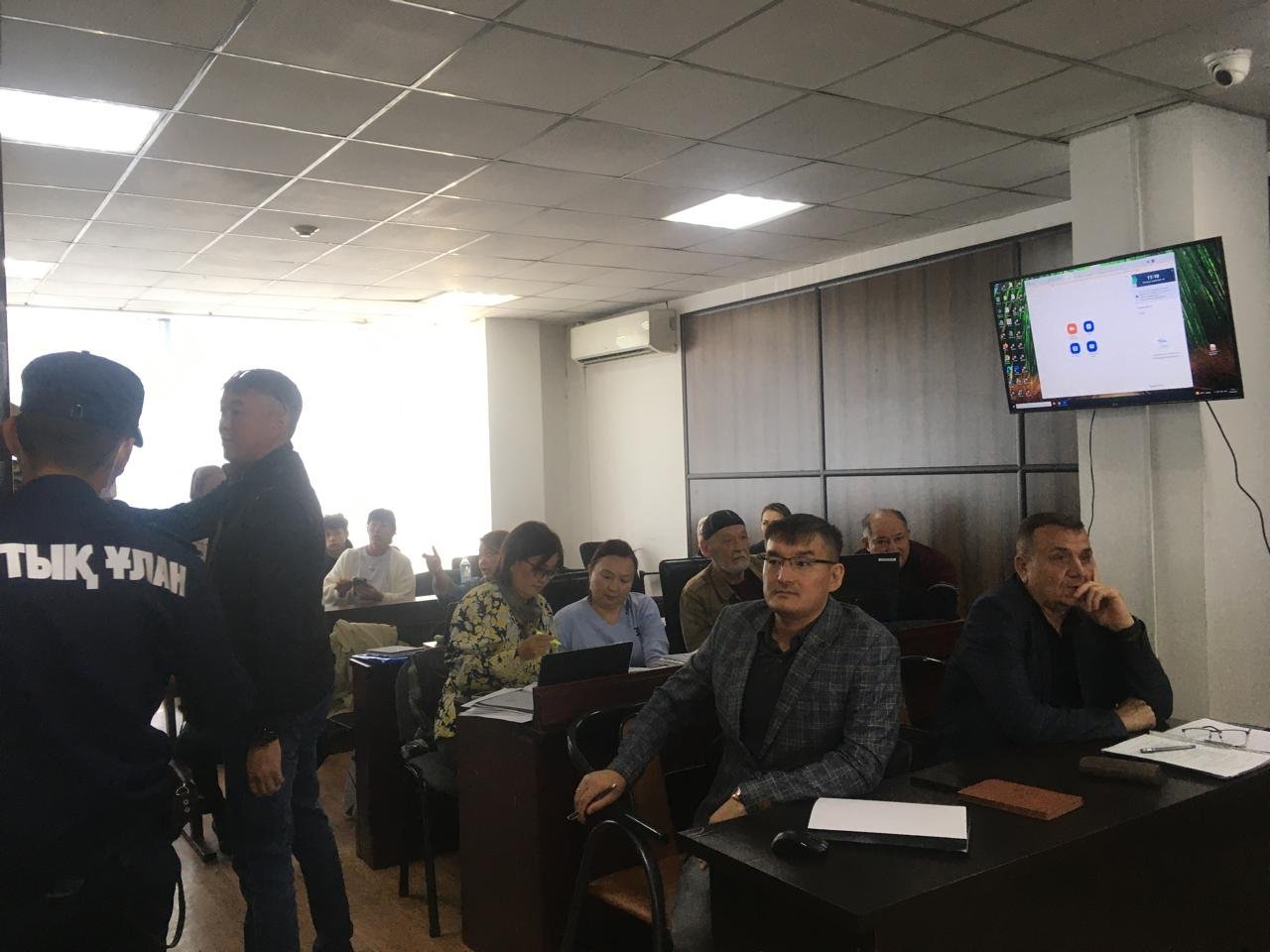
Judge Bakhytkhan Bakirbayev ejected a relative of one of the defendants for unauthorized photography. Only accredited journalists may take photos, and even then, with restrictions — jurors and defendants cannot be shown, only the judge and general shots of lawyers and those present.
Tensions escalated when representatives of the defense and prosecution traded personal attacks. One defense lawyer even threatened Blayev with a civil lawsuit for defamation.
Victim’s Testimony
The hearing began with Bakhtiyar Blayev testifying that during the previous closed trial, the defense secretly recorded participants. He said defendant Damir Kusheyev’s wife, Akmeir, published parts of the indictment and his personal information on TikTok.
"You have a lawyer, sue them. But not in our court," Judge Bakirbayev told him.
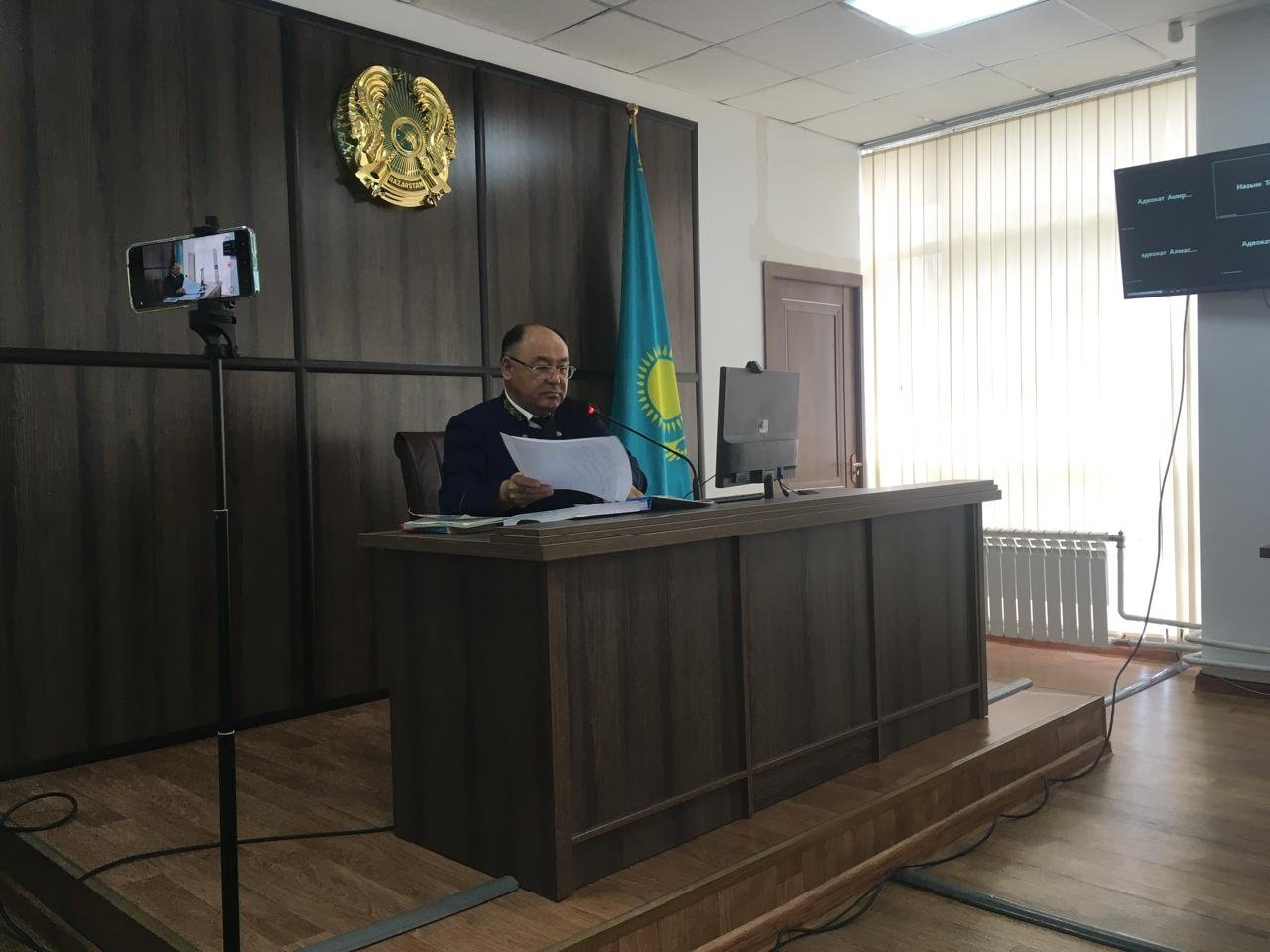
Blayev said posting his details publicly caused friends to question him, which he found unpleasant. The judge reminded him:
"The judge is not asked questions. And we do not consult with anyone!"
Blayev then recounted the events that led to the charges, starting with January 20, 2025, when he was driving in his jeep and was spotted by defendant Aitmukanov.
According to the indictment, Aitmukanov caused an accident and filmed Blayev. Fearing stricter prison conditions, Blayev drove away, but Aitmukanov pursued him and forced him to stop at a refueling station.
When we stopped at the refueling station, Aitmukanov made a phone call. Then Damir Kusheyev and Ruslan Karimov showed up. They arrived about 15 minutes later. Kusheyev started filming me and the car, and Ruslan immediately started yelling. Ruslan shouted that he was a lawyer, an attorney, and that they had seen me get into an accident and flee the scene… I asked who they were. They introduced themselves as community activists. Ruslan said I was a bad person, the executive director of a company who wasn’t paying people,Blayev told the court.
Open sources show Blayev himself was convicted in 2023 under Articles 216 (“Issuing false invoices”) and 389 (“Arbitrariness”), though he denies guilt and blames the defendants and their relatives for his conviction.
Why did they do this? … They lost lawsuits, so they filed a complaint against me, alleging corporate raiding, cashing out, and fraud. They then called in reporters, created a huge stir, and, oh my honor, I was locked up, he said.
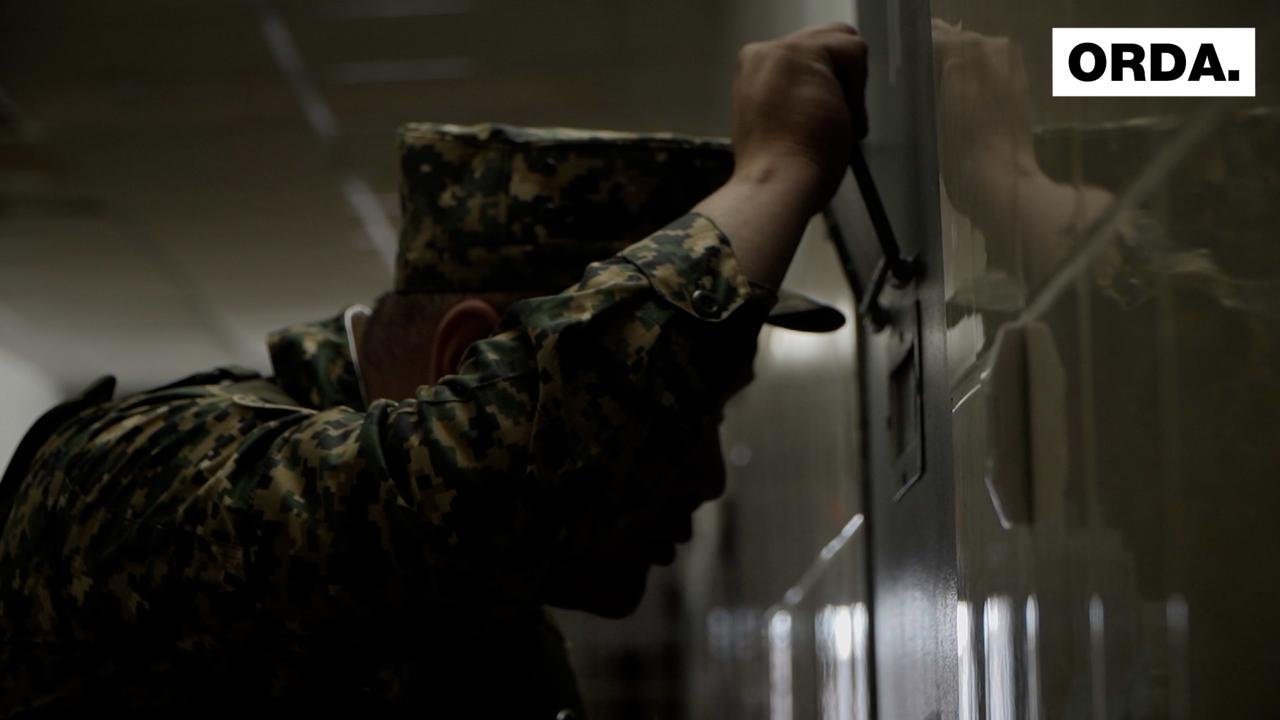
Blayev insisted the extortion was revenge for earlier failed civil suits involving businesses owned by Lyudmila Belyanskaya and Maira Dzhabbabergenova.
"It turns out that in Kazakhstan, it’s easy and simple to lock someone up. They ruined my life! … That’s how it all started. I file lawsuits, win, private enforcement officers handle them, and they create a stir," he testified.
The judge repeatedly told him to get to the point:
"Let’s get to the point! You’re repeating the same thing! Explain the main point, without any preamble!"
Blayev replied that he wanted to show the defendants’ true motives, adding that he complied with their demands out of fear.
His gestures prompted the defendants' lawyers to request that the court respond:
It's extremely unpleasant when someone points a finger at them; it's humiliating. So don't point at the defendants, speak politely, and look at the judge, not at them. You're testifying for the court, said the lawyer.
Judge Bakirbayev instructed the victim to control his emotions and to refrain from looking at the defendants and their lawyers, noting that such behavior was considered disruptive.
When one of the defendants’ mothers voiced displeasure at the judge’s comments, he rebuked her.
He then warned the defendants’ relatives that any disturbance would result in their immediate removal from the courtroom and a ban from attending further hearings, with the possibility of an administrative fine.
Turning back to the victim, the judge said:
“Get to the point. Even the lawyers and those present were upset!”
The victim responded that the defendants had threatened to worsen the punishment for him and his younger brother.
I had six months left in my sentence. I'd already spent a year and six months in pre-trial detention because of these people! I was anxious about it all. Ruslan demanded my company documents — stamps, work completion certificates. Even though the work hadn't been completed, he demanded I write it down as completed. Kusheyev said that if I didn't comply, all the video he'd filmed would be posted online.
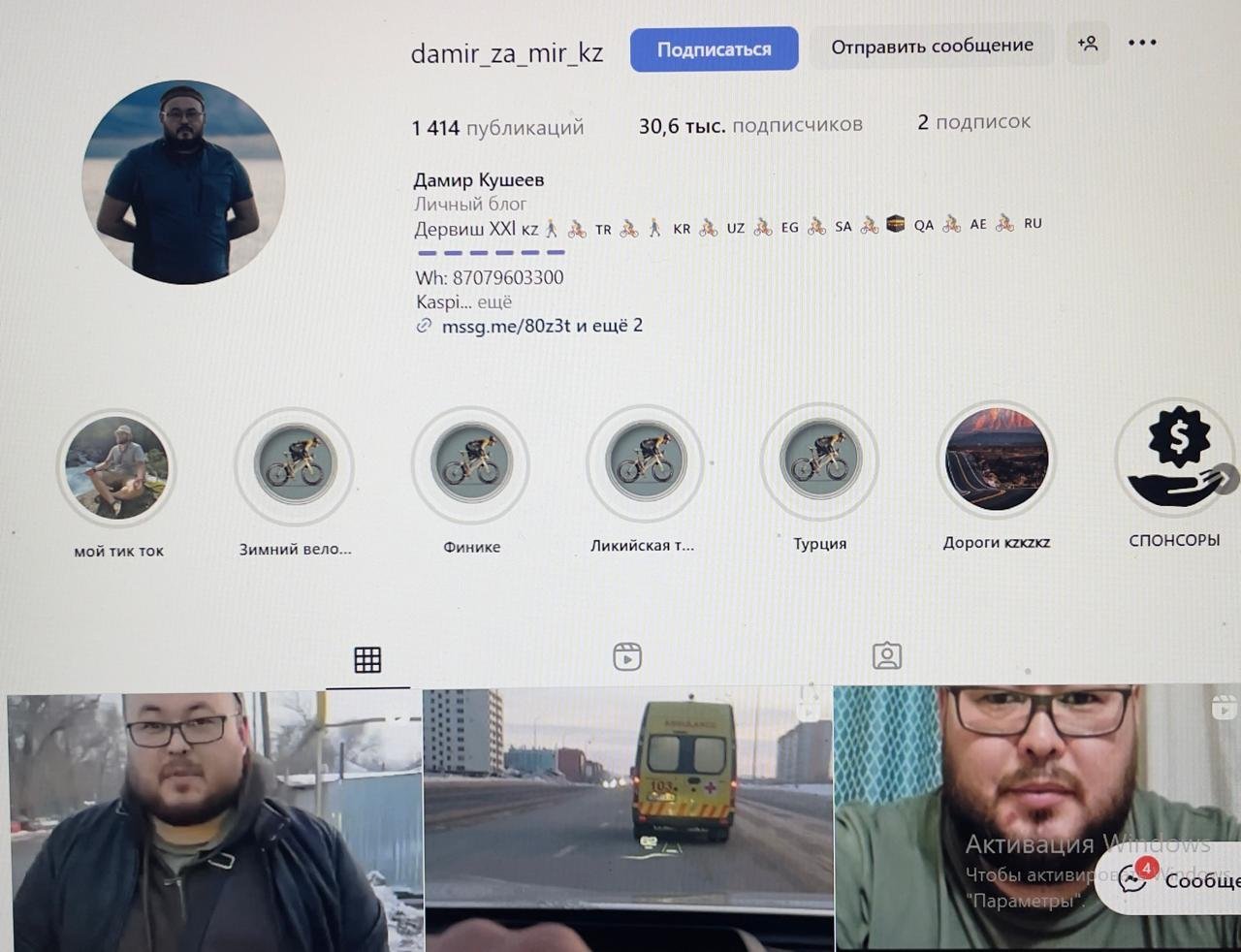
The Alleged Extortion
The indictment states that Kusheyev and Karimov extorted 10 million tenge and pressured Blayev to drop claims worth 20.5 million tenge against Aitmukanov’s ex-wife, Dzhabbabergenova. According to Blayev, Karimov took him to a private judicial enforcer's office, where the pressure intensified.
I was scared. Such a crowd had gathered in the small room of the private enforcer's office. Kusheyev was filming everything, and Ruslan was yelling that we had to finish everything that day. I had to return to the penal colony no later than 8:00 PM. Then Damir and Ruslan started pressuring me. They recorded my conversations with them, but when they spoke to me, they didn't record themselves. Around 3:00 PM, Ruslan started mentioning that he knew a notary. He told me, 'You'll write a waiver with him.' I agreed to pay the private office's fees and eight million tenge in damages. I said I'd give him everything, just don't film me. We'll go to the economic court in the morning, or wherever you want, to the notary. I don't have time now; I have to report to the penal colony.
He claimed Dzhabbabergenova’s brother also demanded he drop claims against Lyudmila Belyanskaya, threatening to release incriminating video otherwise.
I feared for my life because of that video, so I agreed to sign whatever they wanted. Some time later, the prison administration called me. They asked where I was. I answered. They told me I'd been in an accident and fled the scene. It turns out some bloggers had arrived and were causing a scene. An hour later, I arrived at the prison. Ruslan and Damir were standing outside, saw us, and started making a scene. The prison warden asked me what I was going to do. I replied that I didn't know. The prison administration told me specifically: whatever they say, I have to do.
According to Blayev, he explained to the head of the colony that he was not guilty of the accident and that he was being blackmailed.
He asked me if I was absolutely sure I was right. I said yes. Immediately, the prison administration told Kusheyev and Ruslan to go to buzz off. Then they called the KNB and UBOP. At four in the morning, they arrived at the prison and took me away. I explained everything to them.
At this point, the judge intervened in the victim’s story:
We're interested in what video the defendants made, what it was about, and where they posted it. Can you explain this so we can understand? You're not making it clear, which is why some people in the courtroom are getting anxious!
The victim was so stressed that he couldn't recount the video's contents in plain language.
So, we'll explain briefly: blogger Kusheyev told his followers how an incarcerated person, Blayev, freely drove around the city.
He then questioned the conditions of inmates at Penal Colony No. 13. He claimed he didn't know they were allowed to drive their own cars freely and didn't think they were provided with resort-like conditions.
The blogger compared the penal colony to a hostel.
Law Enforcement Operation
Blayev focused on his testimony about how the defendants forced him to sign a mediated agreement at a legal clinic to waive his claims against Dzhabbabargenova and Belyanskaya.
He persistently referred to the legal clinic as a "legal outfit.”
Aitmukanov invited my father and me to the legal outfit No. 8 to enter into a mediation agreement. When we arrived, lawyers Zhubaniyazova and Botashova, Aitmukanov, and Andrey and Lyudmila Belyansky were in the office. Zhubaniyazova immediately said the bloggers could delete the video if I signed the agreement. My family rejected the court's decisions, and we... um...
Blayev hesitated, choosing his words, and at that moment, a voice from the neural network was heard in the hall.
"I can help you complete your thought!" said artificial intelligence.
It turned out that one of the lawyers was recording the victim's testimony on their iPhone, and ChatGPT intervened. It was so unexpected and yet so appropriate that everyone in the courtroom burst into laughter.
Even the judge noted that the artificial intelligence couldn't resist and decided to help the victim clearly articulate his thoughts.
Blayev reacted calmly to the judge's comments and extremely impulsively to those of Kusheyev's lawyers.
They threatened to open a new criminal case against me at the Department of Economic Development. Zhubaniyazov and Botashov's lawyers said they had prepared a mediation agreement. My task was to waive the 16 million tenge claim and pay the private judicial enforcer and Belyansky 20 million tenge in moral damages. The enforcer had withheld about two million tenge from them, and I was supposed to return it. I asked what I would get in return. They told me the bloggers would no longer follow me or make videos about me. We signed everything, and then the UBOP officers came in.
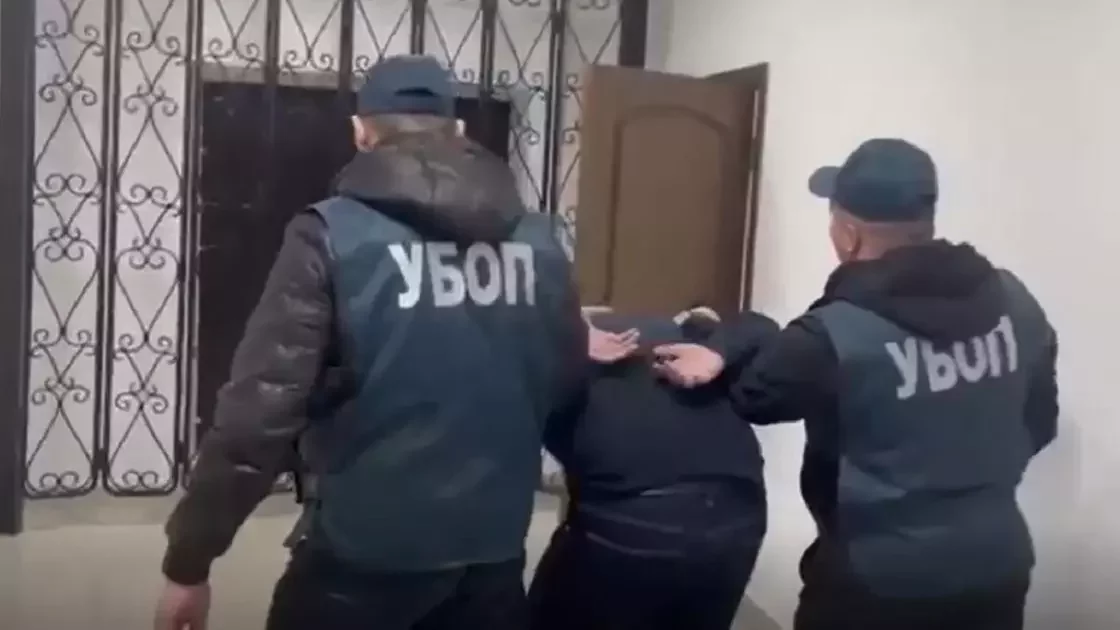
Blayev declined to go into details of the police undercover operation, citing a non-disclosure agreement.
However, it was clear that operatives from the Almaty Police Department's Organized Crime Unit had instructed him in advance on how to conduct himself during the meeting with the suspect.
They handed him a package containing 200,000 tenge and a marked banknote of 6.09 million tenge.
When he handed it to Aitmukanov, they stormed the legal office. There, they detained Aitmukanov and Belyansky.
Later, various media outlets reported various amounts — sometimes 8 million, sometimes 10 million tenge — that were allegedly found on the suspects during the search.
The actual figure was more modest.
Dear Court, why did I do this? Because in 2020, they removed me from the parliament, broke my family and me... I agreed to their terms because I feared for myself, my brother, and my father, who is now ill and, one might say, crippled. I'm still single because for years they portrayed me as a bad person, a con man, a liar!
Blayev summed up.
He did not specify which parliamentary mandate he was stripped of due to his criminal record.
Public sources indicate that Blayev was previously an activist in the Nur Otan party and ran for the Majilis.
His personal social media pages are currently unavailable, so it is impossible to verify this information.
We found one media mention of him from 2022, which reported how he, along with other Nur Otan party members, provided charitable assistance totaling 124 million tenge to Almaty residents affected by the January unrest.
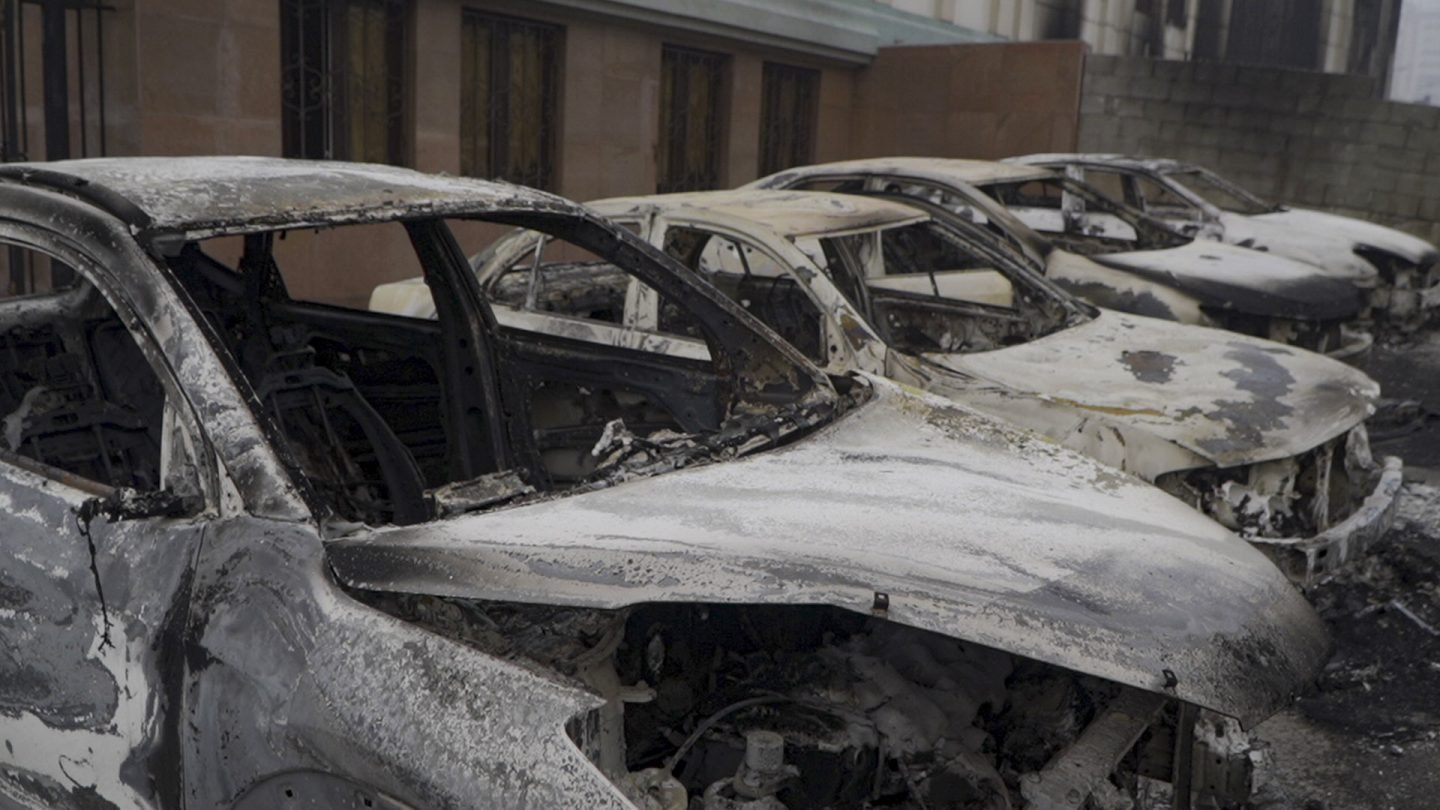
Blitzed
Finally, it was the defense's turn to ask questions. They asked the victim about the nature of his relationship with Aitmukanov, and Blayev answered honestly:
"Yes, we have an unpleasant relationship. I hate him!"
It later emerged that on the way to the village of Bayserke, Blayev had spoken on the phone with a lawyer he knew. He received legal advice on the best course of action and followed it.
The defense spent a considerable amount of time trying to figure out how Blayev had seen the scandalous videos on TikTok and Instagram. Incarcerated persons in the penal colony are prohibited from using cell phones and the internet.
So how could he have seen the video about himself if bloggers Kusheyev and Karimov filmed him during the day on January 20, while he was in a closed facility from the evening until the morning of January 21?
Blayev initially claimed that Kusheyev and Karimov themselves showed him the incriminating video when they arrived at Penal Colony No. 13. Then he recalled that it was the prison director who showed him a video from his phone of himself escaping from Aitmukanov's pursuit.
Blayev finally admitted that the video was shown to him by members of the investigative task force who arrived at the prison at 4:00 a.m. on January 21, 2025. Incidentally, prison management later punished him for the violation, placing him in a disciplinary cell.
The defense also wanted to know why Blayev, after being convicted, was able to drive his jeep around the city without any problem.
We quote almost verbatim the conversation between one of Kusheyev's lawyers and Blayev.
Were you driving when you had an accident?
— I didn't cause the accident. I was behind the wheel.
Can you drive a vehicle while you've been convicted? If so, what document states this?
— Yes, I can. Look up the Criminal Executive Code.
There's Order No. 819 of the Minister of Internal Affairs. So, you're not allowed to drive a vehicle. I worked at the Department of Penal Enforcement System (KUIS) myself, so I know this well. You're not allowed to leave the prison without permission from the administration. If you've gone to the hospital, you'll only do so with a doctor's permission. You've violated the prison rules. See Article 130 of the Criminal Executive Code of the Republic of Kazakhstan — "Violation of the Established Procedure for Serving a Sentence." It provides for punishment.
Blayev became indignant, and the judge called him to order.
"Calm down. No one is planning to send you back just yet!"
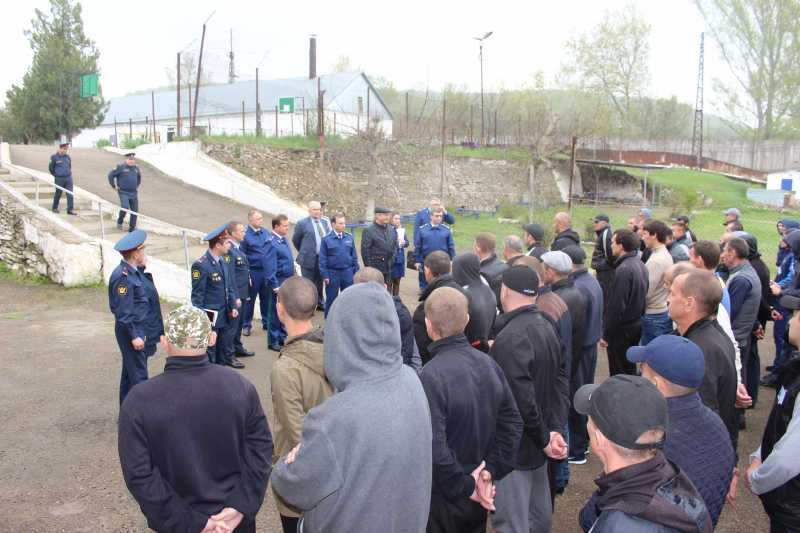
Another lawyer also gave the victim a blitz interview.
Blayev, why did you conceal from the court and the jury that you were also convicted of arbitrariness under Article 389 of the Criminal Code of the Republic of Kazakhstan?
— I only have Part 3 of Article 216 of the Criminal Code of the Republic of Kazakhstan written everywhere.
At the last hearing, you said you considered yourself innocent and that the accountants were to blame. Were any of them prosecuted alongside you?
— It's none of your business!
Is your testimony in court truthful?
— I told the truth, Your Honor. I don't want to answer you anymore, lawyer!
Can you provide at least one piece of evidence that would confirm your words about the guilt of the defendants?
The victim didn't respond. The lawyer pressed him further.
You're saying that anyone can be imprisoned here, right?
— Yes, anyone can be jailed. And you can be jailed too, if they rally bloggers against you and create a stir. It's so easy and simple!
Please provide me with audio and video recordings of what he just said. I will sue him for defamation. And another civil case will be filed against you. Esteemed jurors! I must draw your attention to why Blayev did not answer my question about the evidence and why he looked at his defense attorney at that moment. Because there is no such evidence, and you will see this during the trial.
The lawyer's remark was immediately met with a response from the victim's representative and the prosecutor.
They expressed outrage and asked the defense attorney to refrain from such demands, which could be construed as pressure on the court and the jurors.
While the judge was calling the parties to order, a security guard intervened. It turned out he had seen a relative of one of the defendants secretly filming them and reported it to the judge.
The woman tried to justify herself, claiming she'd only photographed her loved one once.
Still, the judge demanded she leave the courtroom immediately. As she headed for the exit, the woman angrily remarked that they were setting up a trial and asked the judge for permission to photograph him.
"You allowed journalists to film you. Why can't I?"
There was a pause.
Notably, at the beginning of the hearing, the judge allowed journalists from the Russian and Kazakh editions of Orda.kz to step into the center of the courtroom and photograph him from a specific angle.
This was done so that the jurors wouldn't be in the frame. A young man, unknown to us, joined us for the impromptu photo shoot. The judge asked what media outlet he represented.
He replied that he had no connection with the press and introduced himself as the brother of the defendant, Kusheyev. The judge forbade him from taking photographs. The young man objected that the trial was open, so he had the right to photograph a loved one.
However, the judge forced him to return to his seat and did not remove him from the courtroom.
Dear bloggers and relatives of the defendants! There's no need to start a scene here, because you're doing the defendants a disservice. Why are you picking fights with everyone? Look at this woman's disregard. Do you think she respects the court, the law, or the defendants? Do you think she cares about them? On the contrary, if she cared about the defendants, she wouldn't be arguing!
Judge Bakirbayev addressed those present.
Toward the close of the hearing, counsel for defendant Andrei Belyansky questioned the victim.
He asked why Blayev had disclosed for the first time in court — and not during the investigation — that the brother of defendant Dzhabbabergenova had pressured him to write off a debt owed by Lyudmila Belyanskaya’s business.
The victim was unable to provide a clear response.
The defense attorney continued:
Who scheduled your appointment at the legal clinic to sign the mediation agreement?
— Aitmukanov, through my father, arranged the meeting.
Clause 7.2 of the mediation agreement states that bloggers will not contact you in the future. Who included this clause?
— The lawyers for Zhubaniyazov and Botashov drafted the text of the agreement.
The defense then addressed the court:
I would like to note, Your Honor, that the interrogation transcript records that clause 7.2 was added on Blayev’s initiative. He himself said the clause could be removed, since Belyansky has no connection to bloggers Kusheyev and Karimov. Nevertheless, he insisted on leaving it in, just in case.
The victim offered no reply.
Instead, he diverted the court’s attention to a colleague from Orda.kz’s Kazakh editorial office, alleging she was secretly recording him on her phone.
In fact, she was not — she had merely been looking at her screen.
Original Author: Zhanar Kusanova
Latest news
- Dorstroytrest Head Sentenced to Seven Years for Embezzling State Funds
- Ex-Presidential Property Official’s Company Accused of Illegal Gold Mining
- FT: $6 Billion in Transactions Passed Through Russian Ruble Stablecoin A7A5 Despite U.S. Sanctions
- Almaty Police Detain 22 Suspects Linked to Organized Crime Ring
- Settlement Reached in Phuket Over Layan Green Park Eco-Condo Dispute
- MIA Shakes Up Jambyl Region Police Department Leadership
- Georgian Prosecutors Charge Five Over October 4 Protest
- Kulager Hockey Club Employee Detained on Fraud Suspicion
- Almaty Woman Appeals Sentence for Abusive Ex-Husband
- Memorial Plaque Honoring Saltanat Nukenova Unveiled in Qostanay Region
- Kazakhstan Becomes World’s Top Gold Buyer in August as Global Prices Hit Record Highs
- Trial of Activists Kusheyev and Karimov Nears Its Conclusion
- Dimash Qudaibergen Opens World Tour with Sold-Out Madison Square Garden Concert
- Questions Surround Construction of Presidential Library in Central Almaty
- Rare Kulans Captured on Camera in Altyn-Emel National Park
- Border Service Soldier Dies in Almaty Region; Investigation Underway, Family Raises Questions
- New Details Emerge in the Qaraganda Police Station Incident
- Ruslan Berdenov Appointed Head of Almaty City Development Center
- Japarov: Kyrgyzstan's Citizens Will Decide on Death Penalty Reinstatement
- Protests Erupt in Tbilisi Amid Local Elections

